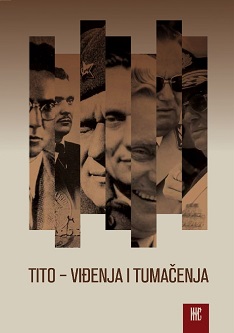Titove dileme o AVNOJ-u i o ustavnom uređenju Jugoslavije 1943-1946. godine. Sa posebnim osvrtom na Republiku Makedoniju
Tito's Dilemmas Concerning the AVNOJ and the Constitutional Order of Yugoslavia 1943-1946. With Special Reference to the Republic of Macedonia
Author(s): Novica Veljanovski
Subject(s): Constitutional Law, Political history, Government/Political systems, WW II and following years (1940 - 1949)
Published by: Institut za noviju istoriju Srbije
Keywords: Tito; AVNOJ; Yugoslav federation; Macedonia; Serbia; Muslim factor; Macedonian statehood; ASNOM; M. A. Cento; constitutional order of the federation;
Summary/Abstract: Dilemmas about the interim partisan parliament (AVNOJ] appeared with J. B. Tito and with members of the then Yugoslav federation already at the time it was being prepared and held, and they lived on even after it had been held. The is proven by subsequently aired critique of the then adopted decisions - present already at the time the AVNOJ was formed, but expressed much more clearly after Tito's death and the break-up of the Yugoslav federation. Our research shows that Tito initially didn't have a completely clear concept as to which federal units should make up the federal Yugoslavia and which should be declared autnonomous regions or provinces within those federal units, so that he allowed it to be solved in the decision-making process and depending on the influence of some of his collaborators. Concerning Macedonia, some authors believed it hadn't been earmarked as a special federal unit neither at the first nor at the second AVNOJ meeting. Such claims are groundless. It is true that the Macedonian delegation didn'ttake part atthe sessions, but the AVNOJ documents tell us that already at the begining Macedonia had been foreseen as one of the constitutive units of the Yugosalv federation. Nevertheless, representatives of the government in exile declared themselves opposed to it during the war. Tito's main concern was international recognition of Yugoslavia and not so much its constitutional make-up. Macedonia accepted the AVNOJ decisions and built them into the documents of its own partisan parliament (ASNOM] in 1944 and into its constitutional document in 1946. The leading people of the ASNOM Presidency expressed the wish that federal units receive wider autonomy in economic matters. This was particularly stressed by Metodija Antonov Čento. He, as well as Panko Brašnarov, the chairman of the ASNOM had to leave the political scene of Macedonia and Yugoslavia because of the views they had expressed. To be sure, this was to a large degree the result of Tito's vacillation in the matter of the make-up of the Yugoslav federation in that period.
Book: Tito - Viđenja i tumačenja
- Page Range: 283-296
- Page Count: 14
- Publication Year: 2011
- Language: Serbian
- Content File-PDF

